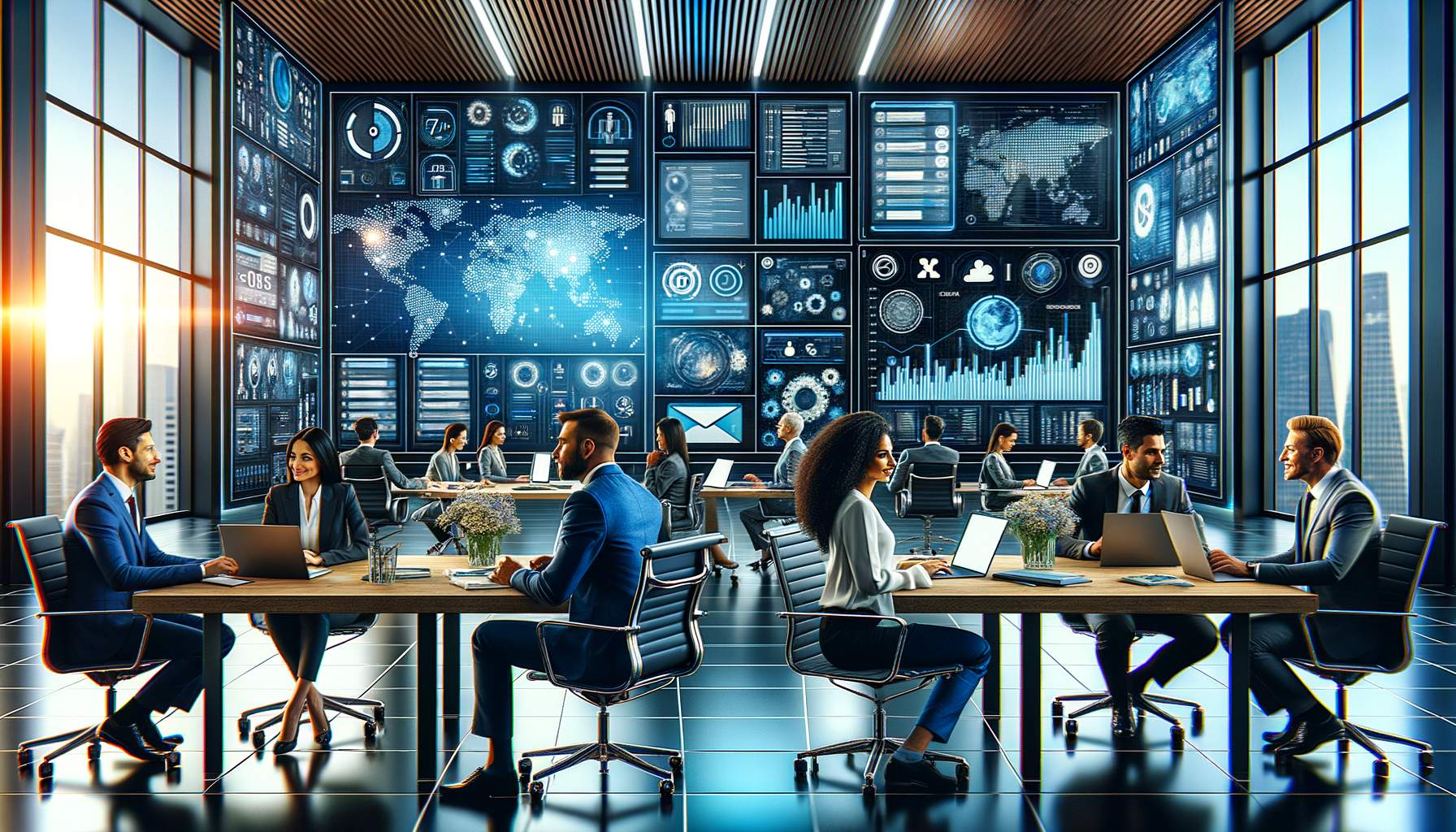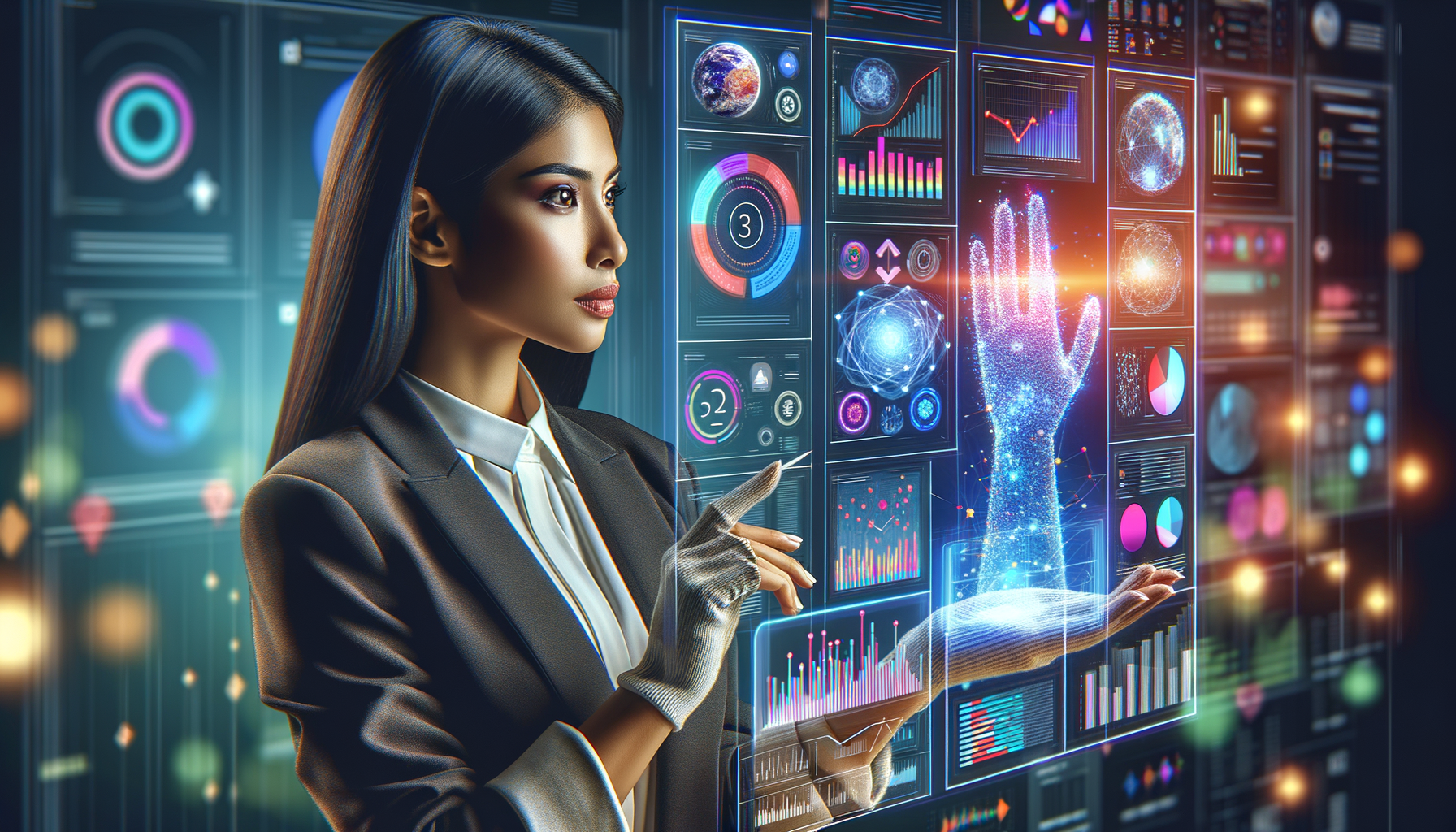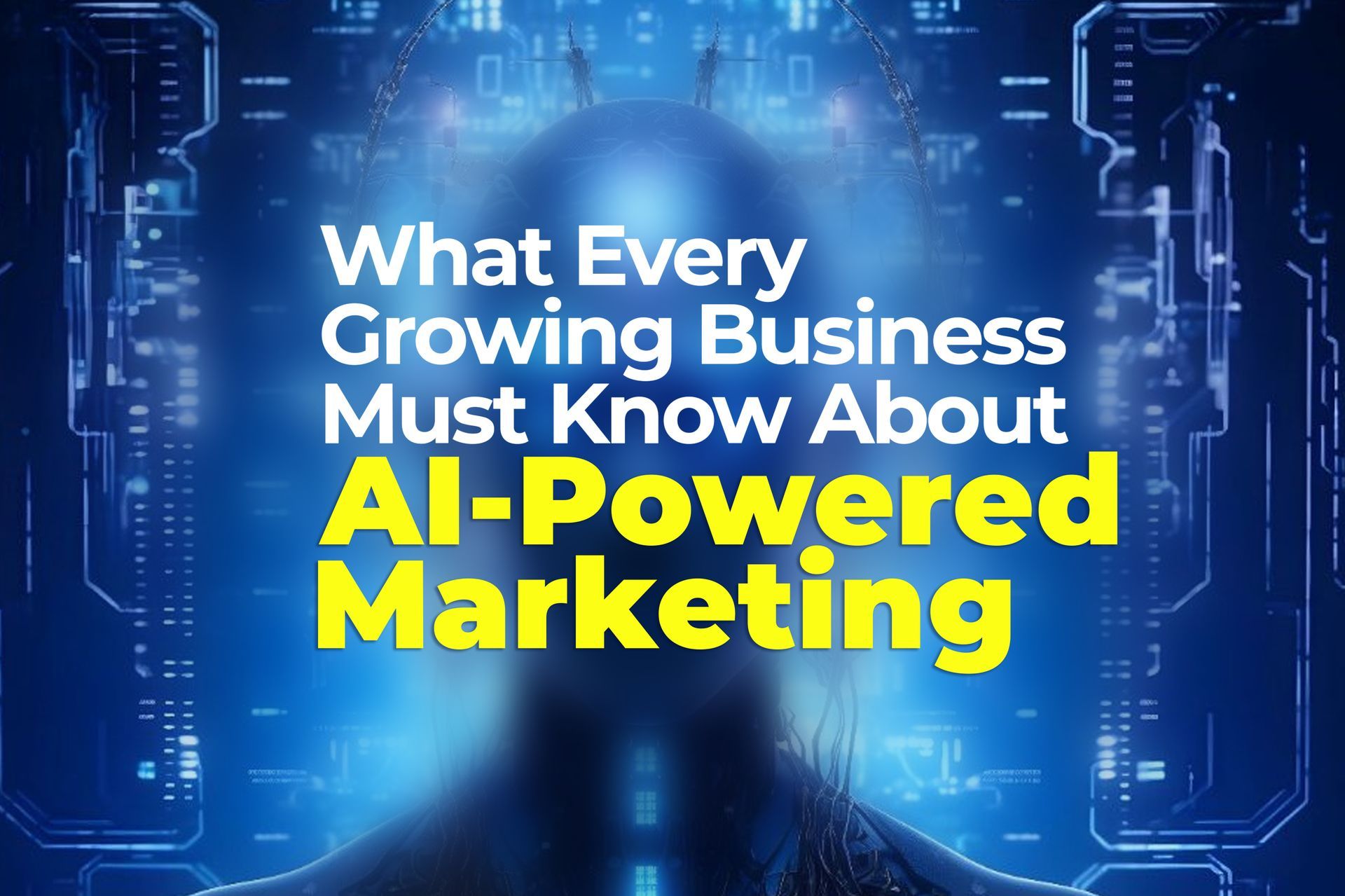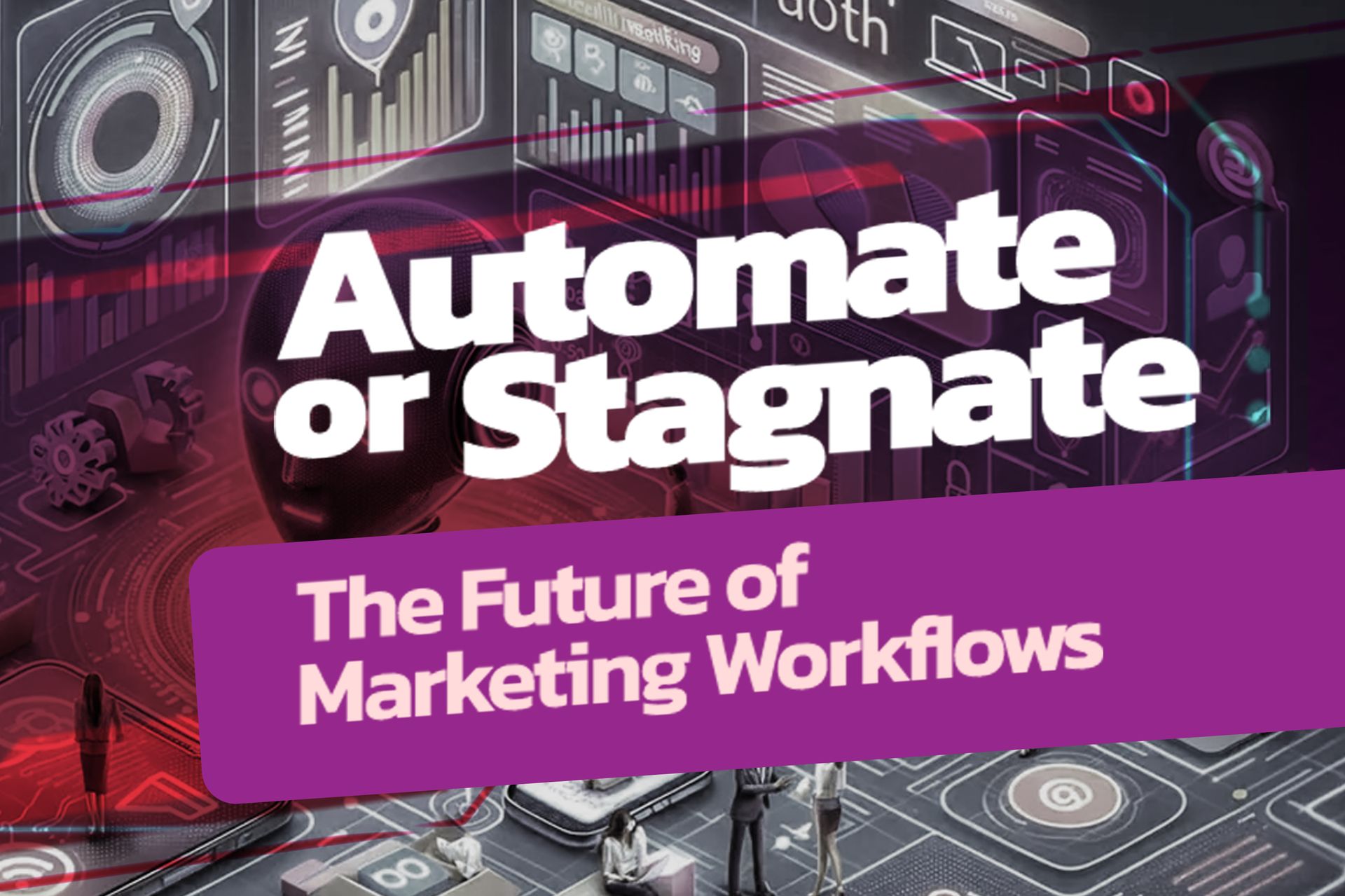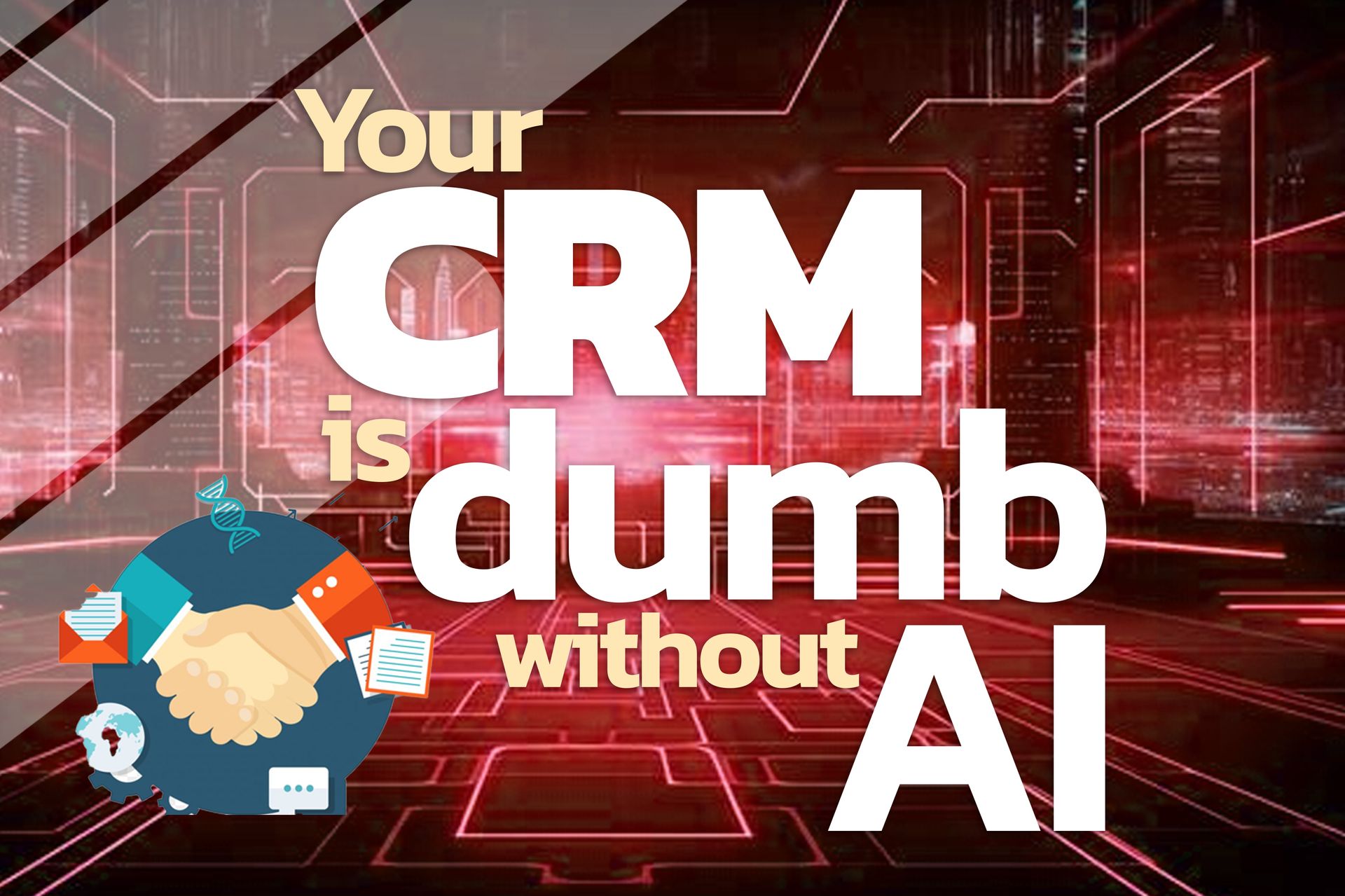Marketing AI Caution: BE CAREFUL what you attract with your marketing
Marketing AI Caution: BE CAREFUL what you attract with your marketing
Hey guys, have you ever seen an ad that looks so polished? The copy's so good? Or even the picture looks kind of overdone. It just looks fake, right? And we used to think about that stuff in the old days, be like, oh, that's Photoshopped. Remember with that whole thing? And now we like real pictures in our ads. That's kind of the trap of AI that I want to talk to you about today as it relates to your marketing, your brand, your product, your service. So let's get into why you need to be careful when you're marketing with AI and how and what it may or may not attract. And in my opinion, if you over-leverage it right now in the current state of affairs, and that may change, everything could change, certainly changed a lot from last year. The AI actually in overuse can hurt your brand.
So let's talk about why. Alright, first off, there is this tendency to think that artificial intelligence is some like magic wand, lightsaber super tool that's going to save the universe. And everybody's going to sit on a lounge share with one of those little umbrella drinks and do nothing. And we're all going to get rich. If you haven't figured it out yet, that's probably not going to happen, at least not this week and probably not this year. The fact of the matter is right now is that AI simply cannot replace human touch, wisdom, intuition, and that we can convey through our marketing that simply just cannot be replicated with today's existing technology. So our customers feel it when all of that stuff is missing. That is kind of the soul of our brand, our copywriting, our advertising, and even our videos now. So for instance, this is really me, and if it wasn't, this whole thing would probably seem a little wonky.
And I know people are putting out all sorts of videos online. They're like a talking robot voice and it just keeps going and it's super monotone. And I know a lot of that stuff gets watches and likes and things like that. I just sort of doubt, and I certainly don't have any clients here at our agency that want their brand represented that way. So if you're going for clicks and you're in the clickbait game, have at it. If you're like the rest of us and you have a real brand and a company, brick and mortar or otherwise, e-comm doesn't matter that you take pride in. That is part of who you are, represents a team, and there are people counting on you and their families are counting on that whole business to provide for everybody involved and your customers are counting on you to be authentic with them.
All of this cautionary sort of talk is hyper relevant. The reality is that fake marketing, the reality is that fake marketing just simply erodes trust. And the great example of that is, and in general think McDonald's does a great job with marketing. Clearly they're one of the biggest brands in the world, but we all get a little disappointed when we go to the drive-thru. We see that fancy new kiosk thing they have and whatever it is, egg McMuffin or it doesn't really matter what it is, it looks so ridiculously perfect. And I mean, I sit there and I take pictures of that stuff because kind of into that, and I don't know if you guys have noticed, but the same little Photoshop egg McMuffin is used in every little grouping across their digital display because they kind of get that one done perfect and they just copy and paste it all over the place.
It just feels fake. We know it's fake. We know it's not going to look like that when we get our bag of food. We know we're going to eat something that isn't fairly represented. And we know that McDonald's just kind of like blowing smoke and we've learned to accept it from them. And the question is, how much of that do you want to accept in your own business? How disparate do you want to be from what actually the customer gets versus what you represent they're going to get? And that's where we kind of have to collapse the delta. And in my opinion, being closer to authentic is the best path forward. And that doesn't mean that you don't spin the best positive story around your product or service and represent it in the correct light and show positive outcomes and all the other stuff that we talk about on this channel.
I'm not throwing that out at all. I'm saying in the context of using ai, whether it be for image generation, text copy, long form outbound messaging, which is the biggest trap, you can get yourself into this space where you have lost your way. So same thing applies for things like fake reviews, get major backlash for that. Any area where you sort of step out and things start to be inauthentic, you're going to get quickly checked by either the whole internet as it were, depending on the size of your company, or certainly a good component of your customers who are just going to walk away because that's not what they were in for. The other major issue with this is the reality or the thought, the possibility that overuse of AI can sort of take you down this road of irrelevancy. So if everybody's using the sort of same mechanism to create content and stories and messaging and copy, then doesn't it all start to sound the same?
And doesn't wisdom tell us that when everybody zigs, we should zag? I mean, that's kind of an old Wall Street saying, right? Everybody's selling buy, everybody's buying, sell, everybody's using ai, start writing stuff by hand again, it's going to stand out. So there's just some historical logic in the fact that if the whole crowd goes one direction and you want to stand out from the crowd, don't run with them, run the other way. Do the thing that everybody is abandoned and do it well with mastery. So AI doesn't get the nuances, it doesn't get the subtleties not yet. And you can do a lot of training and I know there's going to be pushed back and go ahead, slam me in the comic. Tell me about how you come up with a super prompt. You've done this custom, LLM training, all this other stuff, which I promise you we've been doing for over a year here now as well.
And I think I speak with some level of, I don't want to use the word authority, but I'm definitely informed who we've been playing around with it for 12 months. And in all the areas of marketing that seem applicable and worth the time and financial investment at the same time, we're still scratch baking a lot of the stuff that is the most meaningful and more importantly, the most effective. And that's really where the rubber meets the road. You can shorten the timeframe, you can accelerate the workflow, and I don't have any issues with that. But at the end of the day, the results, the outcome are what pays the bills. And if you go, like I say, kind of out bounds with this, you start to erode brand trust. The long-term implications of that are extremely significant. And that's what this video is about is to spread a little bit of caution out to you guys.
And while not being a buzz kill and trying to ruin the enthusiasm at the same time, bring a little bit of maturity to the conversation about what's appropriate, what we're really getting, what we're giving up, and more. So big picture problems. If you again, go too far into that, you can kill. And this is where it's like a two-edged sword, right? Oh, it helped me figure things out. Great. And at what point does it start to kill creativity? And in my experience, and I've been in this creative business for a long time now, almost two decades, and the creativity is like a muscle, right? It's like creativity is something that we develop. We get strength in it. I don't care if you're a painter, a sculptor, a builder, a welder, a writer, a designer, a filmer, a speaker. Creativity is a strength that we develop through use, through practice, through repetition, through failure, micro failure.
We develop creativity as a strength by doing it. So if we give up doing it, we also give up the ability to get strong and proficient at being creative. And that to me seems extremely dangerous as just human beings. But specifically here as we discussed marketing on this channel and we discuss how to grow our businesses, so letting our creative muscle atrophy might be the biggest tragedy in the entire conversation. Okay? So yeah, you got consumer and customer backlash. That's all real. They start finding out that everything is bullshit with ai, not good implications of that clearly kind of lame. Everything can be labeled as fake and whatever you tried to pull off suddenly can collapse around you like a house of burning carts. And we don't want that. So let's talk about solutions. I want to sit here and complain the whole video, definitely want to bring you guys some ideas.
Here's where we're at with the whole thing, or at least me personally with my team. We're working really hard to balance AI with human paling, human in the loop, human using ai, not the other way around. I think there's probably big nasty corporations right now that let AI run the humans. That's sort of dystopian thing. But I guarantee you there's people maybe not watching this video, but somewhere out there that are doing that. And a great example of that would be like logistics. Okay? Let AI figure out where all the truckers should go. The trucks are still driven by humans, so they're kind of beholden to this artificial intelligence thing. So there are examples of that that probably been in the works if not happening for years. Things that we don't necessarily think about consciously that maybe aren't part of this conversation. But you can look at that and say, is that appropriate for my business?
And in some cases, there's no question, there probably is. And some of those decisions were made on solid ground with good logical business cases behind them. And I am sure a lot of thought and investment goes into that. Now, for the rest of us, and especially in this grave space marketing and all the other creative outputs that it takes to put together good brand messaging and campaigns and stuff like that, I'm saying keep the human beings at the table and don't expect AI to do everything, run everything, and certainly not make all the tactical and strategical decisions that are where intuition comes into play. Now, here's a great example of where I do think it's a super awesome tool. I think AI for data crunching is probably one of the best damn things that's ever showed up this year. I love that I can give artificial intelligence a ton of web traffic reports, advertising reports, footfall reports, click-throughs and conversions and all of this stuff, and start querying it on making the connections and the correlations and the causational relationships that are hard to parse out just manually.
And sometimes would take a week and weeks to do in the past are now taking minutes in some cases. So I'm all for that. So AI for data crunching, AI for looking through numbers, AI for synthesizing and pulling out meaningful database relationships, incredibly powerful. Do I want it to tell all my brand stories? Hell no. Does it have the ability to do that kind of at the most rudimentary level? And we're certainly looking for better than that around here. So I think no matter what you're doing with it, if you're having an outline, you're having it, do some story construction, all that, and make sure that the voice and what you get out actually sounds like you. And I mean in terms of your brand, your company, your product, your service, who you are who stand for. And again, don't lose your soul. I was having a conversation today with another new person on our team, and we are drawing the analogy that AI copywriting is kind of the same issue that you see in video games where they have a CJI character and the CJI character looks perfect.
Everything about 'em, they got textured and torn jacket and bullet holes and all the cool shit that's in video games. And at the same time when the eyes, the person doesn't look alive, everything about them looks almost damn near perfect. I mean, we got all these cool games here, my son plays and I'm into all hardware and tech, but still they can't make it no matter how good they can do Ray tracing and all the lighting and everything, it looks like a freaking movie, but the characters still don't look alive. And this is very much the same with copywriting and artificial intelligence. It's like everything about it is perfect, but it still reads dead. Yeah, tell me I'm wrong. Go ahead, hit me in the comments. I'm all for it. Let's go back and forth on it. I like to hear what you have to say about that because I think that's probably the best analogy.
That has been a known challenge in video game and image generation for the better part of the last 15 years. Keeps getting better, still not there. It's almost like a Moore's law thing. It gets half as good, half as good, half as good, but they still don't look alive, still don't have a soul. They still don't have a true expression in their eyes in a video game. And I'm seeing the same thing with text and LLM generated content that's just missing. Like I say, that piece that is hard to put our finger on, honestly, but we all know it's not there. Okay? So invest in your team, be upfront about when you use ai, and then don't forget to highlight the human side of your brand all while remembering that it's another tool, it's another software tool. It's not a replacement for the things that we know we need in our business, which is the people, the intuition, the thinking, the soul, the subtleties, the wisdom that we have from years of being in business and working with our clients face to face, so on and so forth, and our customers and whatnot. So keep that all in mind. Go ahead, knock me down in the comments. I'd love to hear what you guys think about this stuff and what you think about AI in marketing in general. Is it poison? Is it the magic pill? Comment below. And if you don't, I can't wait to see you on YouTube on the next one.








